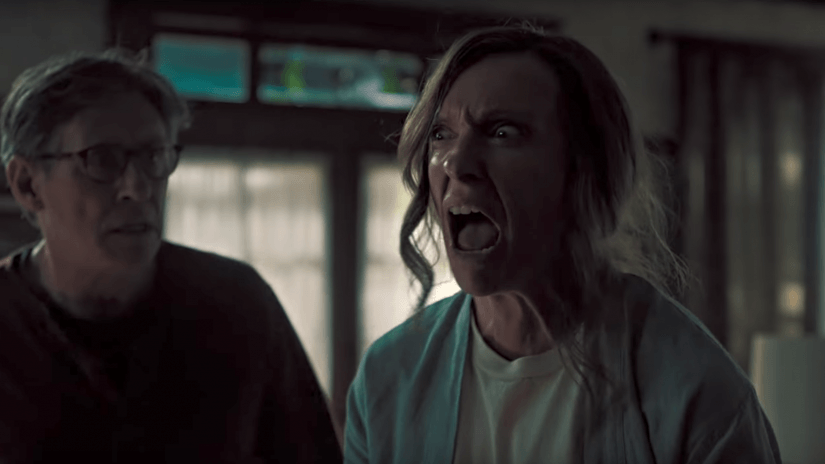Can a horror movie really be too scary? The first reviews from the Sundance Film Festival of Ari Aster’s sinister family saga certainly suggested this might be the case for Hereditary – a film which is being hailed by critics as this generation’s The Exorcist. Marketing hype? Amazingly, no.
Easily the best horror film of the year so far (sorry A Quiet Place) and quite possibly just the best film of the year full stop, Hereditary is crushingly oppressive, deeply shocking and so soaked in grief that while you’re watching it, it feels like nothing will ever be ok again. It’s also stunning looking, tremendously acted and frankly a mindblowing achievement for Aster in his debut film.
The movie begins in a workshop where a miniature diorama of a bedroom sits on a table. We go closer and closer in toward the model until the bedroom fills the frame. And then the bedroom door opens and someone walks in…
It’s an incredible opener which immediately gives you the sense that these people are are just dolls to be moved about at someone else’s will and played with like like chess pieces on an Olympian board. It’s a theme throughout and a perfect metaphor for characters who are essentially at the centre of a grim Greek tragedy.
At the core of the of the story is miniaturist Annie (Toni Collette), whose difficult and secretive mother has just died after a battle with illness, leaving behind boxes filled with secrets. A scene at grief counselling session reveals some of how messed up Annie’s family is when she shares details of a father who starved himself to death and the suicide of another family member.
Annie’s married to the dependable and stoic Steven (Gabriel Byrne) while her unfortunate children are Charlie (Milly Shapiro), an odd, quiet, girl who looks older than her years and likes to make strange toys out of odds and ends (including the severed head of a dead pigeon) and her disaffected stoner brother Peter (Alex Wolff).
Aster himself has said there was a time in his life where he began to wonder if his family was cursed, and that sense is present throughout as the family suffer ordeal after ordeal. On top of this heavy blanket of sadness though, there’s a deep creeping dread. Hereditary deals with family trauma but be in no doubt – this is very definitely a horror movie through and through with tropes and tricks reminiscent of recent hits like Ben Wheatley’s Kill List as well as classics like Rosemary’s Baby, and yes, The Exorcist.
Pawel Pogorzelski’s cinematography is inspired, from the pervasive gloom of the warren-like house, shots of Annie’s miniatures showing increasingly perverse and troubling scenes from her life and certain static shots where night snaps into day as if a light is being switched on – it all adds the sense of the characters as players in someone else’s grand drama. Meanwhile the score by Colin Stetson does a terrific job of ramping up tension which really doesn’t require any extra ramping.
Ultimately though, it’s the cast that makes this movie so effective. Shapiro impressively manages to be deeply sympathetic and fundamentally unsettling at the same time, while Alex Wolff does some seriously heavy lifting – he’s going to be a big star. It’s Collette’s film though, drawing on such a well of emotions she’s stressful to look at even in static imagery – indeed, one of the most wonderful/awful scenes is a dinner table row and the look on her face flitting between all encompassing grief and white hot rage – it’s electric, and I sincerely hope she’s remembered come awards time.
Hereditary ramps up the horror and anguish to points which at times feel almost unbearable – the audience I watched the film with mostly came out with fingernail marks on their arms from gripping themselves throughout. Though it seems an extreme statement for a debut, Hereditary is a horror masterpiece. And too scary? Yes, it actually almost is.

